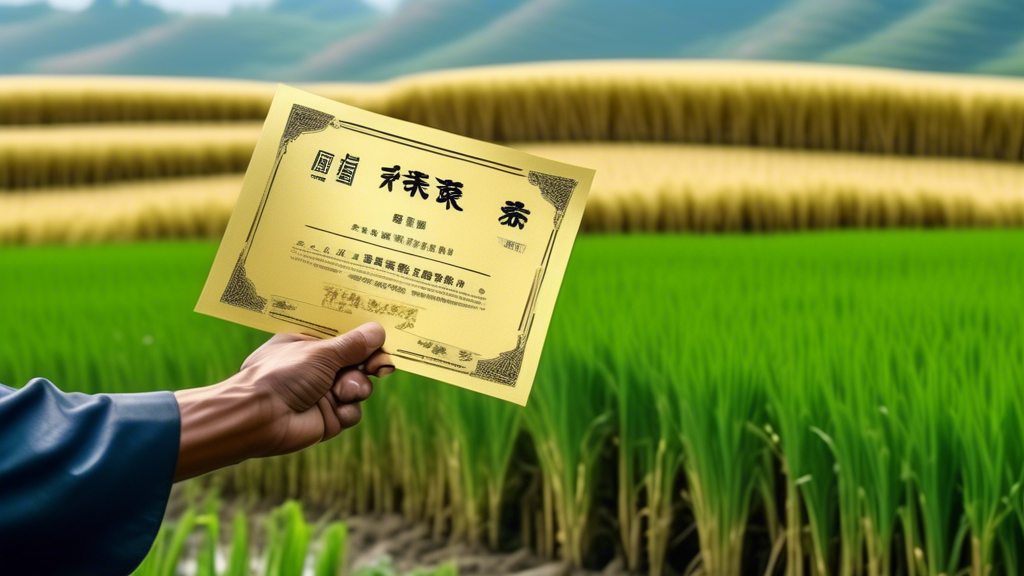Jiangsu province in eastern China becomes the first to grant a carbon credit certificate for the agricultural industry.

In a groundbreaking move, Jiangsu province in eastern China has become the first region in the country to grant a carbon credit certificate for the agricultural industry. This milestone marks a significant step towards recognizing and incentivizing sustainable farming practices that contribute to the reduction of greenhouse gas emissions.
The Importance of Carbon Credits in Agriculture
Carbon credits are a crucial component of the global effort to combat climate change. By assigning a monetary value to the reduction or removal of greenhouse gases from the atmosphere, carbon credits encourage industries to adopt more environmentally friendly practices. In the agricultural sector, this can include:
- Implementing precision farming techniques to reduce fertilizer and water usage
- Adopting no-till or reduced tillage practices to minimize soil disturbance and carbon release
- Planting cover crops to improve soil health and sequester carbon
- Utilizing crop rotation to enhance biodiversity and reduce the need for synthetic inputs
Jiangsu Province's Pioneering Initiative
Jiangsu province's decision to grant a carbon credit certificate to the agricultural industry is a testament to the region's commitment to sustainable development. By recognizing the efforts of farmers who employ eco-friendly practices, Jiangsu is setting a precedent for other provinces in China to follow.
The carbon credit certificate was awarded to a rice farmer who implemented a series of sustainable practices, including:
- Reducing water consumption through alternate wetting and drying irrigation techniques
- Minimizing the use of synthetic fertilizers by incorporating organic amendments
- Planting nitrogen-fixing cover crops to improve soil fertility and reduce greenhouse gas emissions
The Potential Impact on China's Agricultural Landscape
As the world's largest agricultural producer, China has a significant role to play in the global fight against climate change. The country's vast agricultural lands have the potential to act as substantial carbon sinks if sustainable practices are widely adopted. Jiangsu province's pioneering initiative could serve as a catalyst for change, encouraging other regions to follow suit and embrace eco-friendly farming methods.
By providing financial incentives through carbon credits, farmers are more likely to invest in sustainable practices that benefit both their bottom line and the environment. This shift towards greener agriculture can lead to a host of positive outcomes, including:
- Reduced greenhouse gas emissions from the agricultural sector
- Improved soil health and fertility, leading to higher crop yields
- Enhanced water conservation and reduced reliance on irrigation
- Increased biodiversity and ecosystem resilience
Here's a thought to consider:
As the world grapples with the challenges posed by climate change, it is essential that we recognize and support the efforts of those working towards a more sustainable future. Jiangsu province's decision to grant a carbon credit certificate to the agricultural industry is a significant step in the right direction, setting an example for other regions to follow. By embracing eco-friendly farming practices and providing financial incentives through carbon credits, we can work towards building a more resilient and sustainable agricultural landscape for generations to come.
Looking for updates? Sign up to our newsletter for weekly snippets.
#PurelyPlanted #WholesomeHarvest #PlanetPlatter





